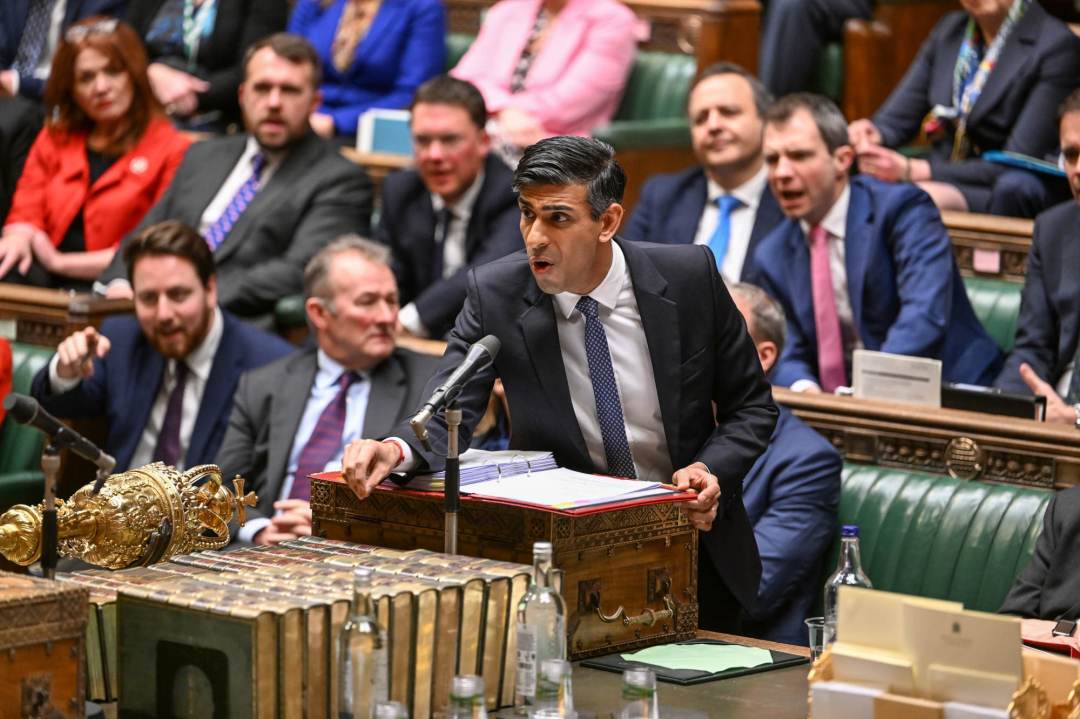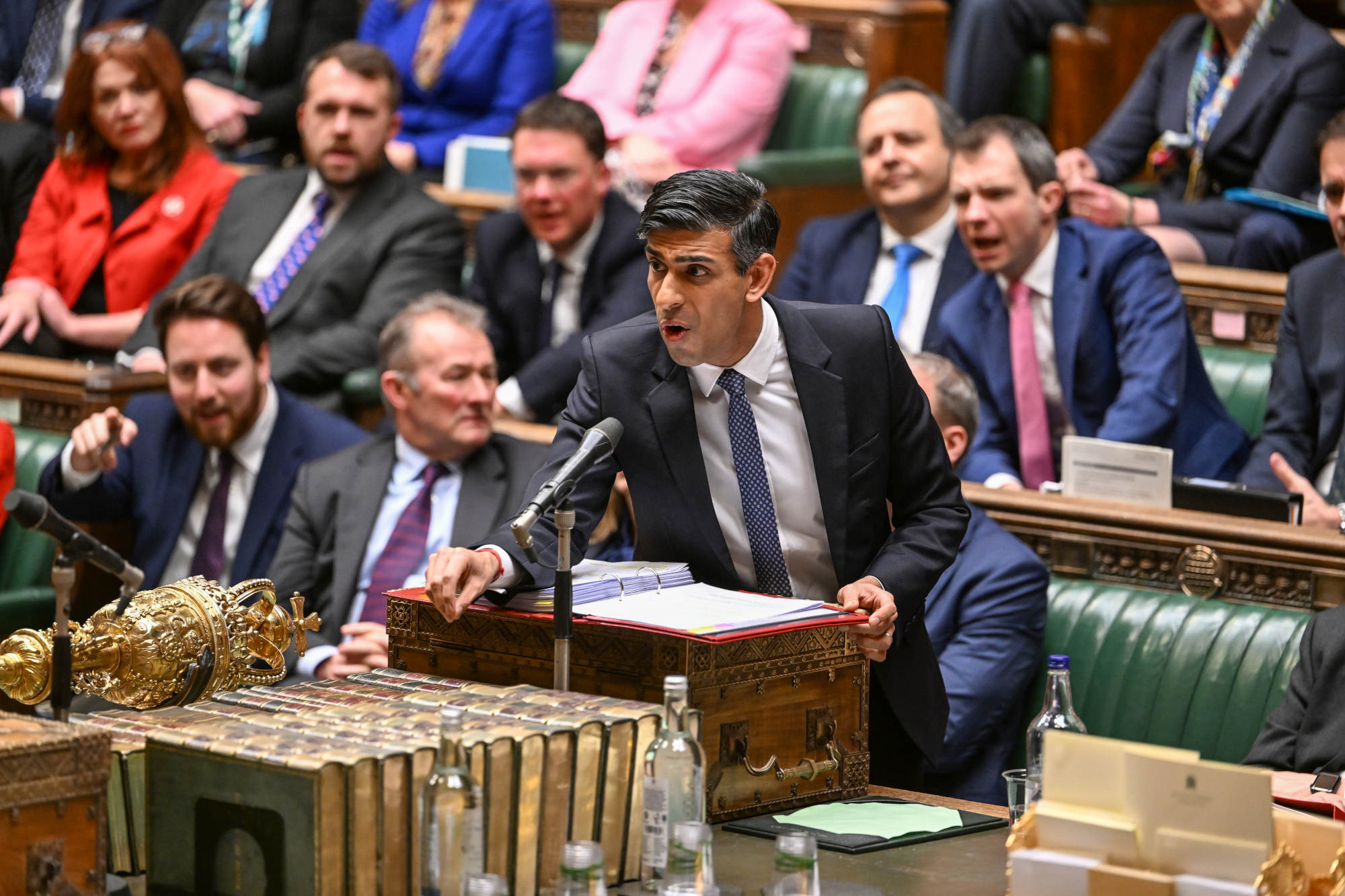Today’s Prime Minister’s Questions saw Keir Starmer launch his strongest attack on Rishi Sunak so far. The topic was the same – the NHS – but the technique new. He opened by asking the Prime Minister to tell the Commons how long someone who called for an ambulance now would have to wait before it turned up. This was slightly blunted by him saying ‘it’s three minutes past 12’, and a Tory heckler shouting ‘well done!’ to chuckles around the chamber. But then the Labour leader went on: ‘If somebody phones 999 now because they have chest pains and fear it might be a heart attack, when would the Prime Minister expect an ambulance to arrive?’
Sunak did not engage with the question, a tactic he stuck to throughout this uncomfortable session. He talked about the importance of people getting the care they needed, and then pivoted to an attack, asking: ‘If he cares about ensuring that patients get access to lifesaving emergency care when they need it, why won’t he support our minimum safety legislation?’ The problem with ‘minimum service’ legislation for strikes in key sectors though is that it reminds everyone that the bigger problem in the NHS is how it runs on non-strike days, when the health service still isn’t able to guarantee minimum safety levels. In fact, as I wrote earlier, voters largely blame the government for the nurses’ strikes.
Starmer continued his timeline of the ‘ticking clock’ for a heart attack patient who had called 999, saying the ambulance should be arriving at around 12.20. Sunak again refused to say when the vehicle would realistically turn up, instead saying ‘because of the investment we are putting in on ambulance call handling, we will improve ambulance times, as we are recovering from the pandemic and indeed the pressures of this winter’. He then reverted to talking about strikes legislation. He also refused to admit the NHS was in crisis as demanded by Starmer, instead moving the focus to Labour-run Wales, where ambulance waits are even worse. ‘This is not about politics, this is about the fact that the NHS in Scotland, in Wales, in England, is dealing with unprecedented challenges, recovering from Covid, dealing with a very virulent and early flu season and everyone is doing their best to bring those wait times down’.
Then the Labour leader personalised his attack and brought up an individual case of someone who had died. ‘This isn’t hypothetical,’ he said. ‘This is real life. Stephanie from Plymouth was battling cancer when she collapsed at home. Her mum rang 999, desperate for help. She only lived a couple of miles from the hospital, but they couldn’t prioritise her. She was 26 when she died, waiting for that ambulance. A young woman whose life was ended far too soon.’ He demanded an end to political games and ‘excuses’ and for a return to the 18-minute wait for an ambulance. Sunak shot back that Starmer was playing political games, and returned to the minimum service legislation, again. His final answer to Starmer was memorable: ‘He isn’t just for the free movement of people, he has also got the free movement of principles.’
These exchanges were reminiscent of the pressure that Margaret Thatcher came under in the late 1980s, when she too refused to let the word ‘crisis’ escape her lips as the NHS struggled. Back then, there were individual cases that caught public and political attention, including little David Barber, an eight-week-old baby whose heart surgery had been delayed five times due to short-staffing. There was uproar in the Commons, and behind the scenes the Prime Minister’s aides were growing worried about the danger Thatcher herself was in. They feared that she didn’t have a strategy for dealing with a crisis that she continued to insist didn’t exist and that her leadership was under threat. A few days later, she gave an interview to the BBC’s Panorama in which she finally accepted there was a ‘crisis’ and promised major NHS reform.
The factors behind the current delays are different, and the NHS is in a very different shape now. But the politics remain the same: once the public are further than the Prime Minister in their assessment of how bad things are in the health service, and once there are memorable and heartbreaking individual stories in circulation, it is very difficult to get a grip on the issue.








Comments